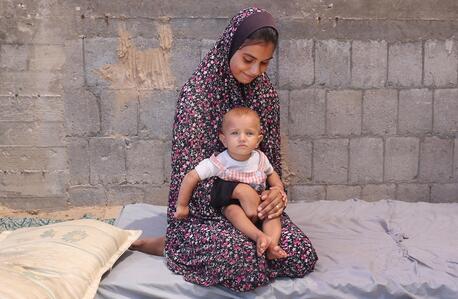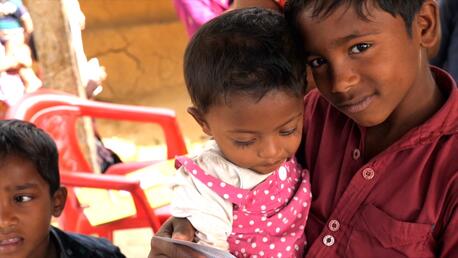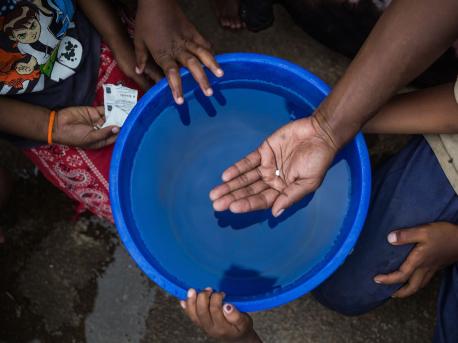
How the UNICEF Tap Project Brought Safe Water to Over 500,000 People
A challenge led to an award-winning fundraising campaign that helped save children's lives around the world.
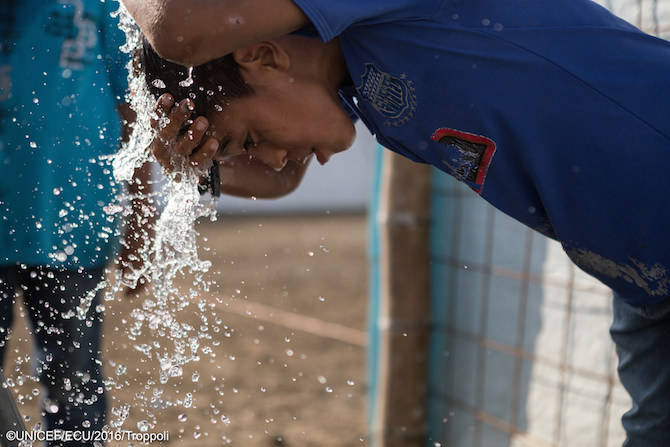
A child cools off at a UNICEF-installed water tap at a child-friendly space in Manabi, Ecuador for children affected by the April 2016 earthquake.
Optimism inspired innovation that made a difference.
It began with a challenge made by Esquire in 2006 to advertising executive David Droga, deemed by the magazine's editors to be among the world's “best and brightest:" with one magazine page, create a brand capable of making positive change.
Droga more than rose to the challenge with his introduction of the UNICEF Tap Project, designed to raise funds to provide safe, clean water to children all over the world. "This was all about the optimism of what we can do and how we can make a difference," Droga has said.
The UNICEF Tap Project launched in 2007 with a one-day pilot in New York City restaurants, where diners donated $1 for the tap water they usually enjoyed for free to support UNICEF water, sanitation and hygiene (WASH) programs.
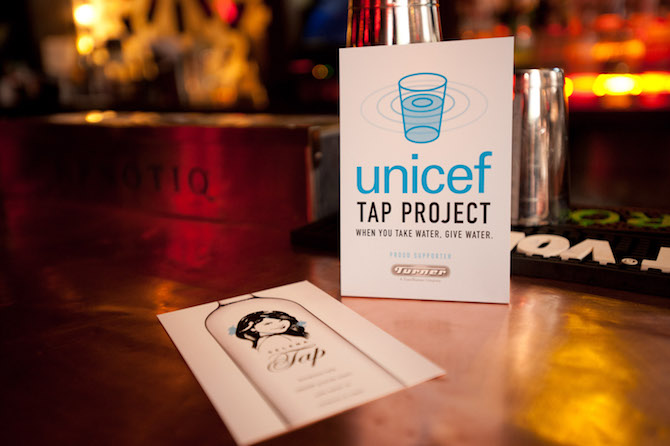
Thousands of restaurants across the U.S. brought the UNICEF TAP project to their diners. ©Melanie Deck/2011
In 2008, the UNICEF Tap Project went national and won the Advertising Club of New York's prestigious awardfor creativity. By then, thousands of restaurants across the U.S. were taking part. As Craft restaurant's chef-owner Tom Colicchio put it to Food & Wine magazine, "Participation in the UNICEF Tap Project was an easy way for restaurants to help save the lives of children around the world."
In 2009, the Tap Project expanded, and by 2011, many notable chefs and restaurateurs had joined the effort. That year, Tap Project participant and UNICEF Ambassador Marcus Samuelsson rallied his industry. "Water is a daily privilege that so many of us take for granted, but children are dying every day due to a lack of clean water," he said. "We can change that. We can literally save the lives of millions of children..."
The Tap Project made a splash in Times Square.
The innovation never stopped: Among the program's early initiatives was a purposeful visit to New York City's Times Square, highlighted in an advertisement for the campaign (see below). There, a UNICEF Tap Project crew hawked bottles of dirty water, dispensed from vending machines that collected donations for kids living without clean water.
As the ad noted, "Nobody drank dirty water — but many donated."
A program aimed at doing good did very, very well.
The Tap Project’s momentum grew as news outlets noticed, and celebrities and influencers across technology, sports and many other industries lent support to the cause.
YouTube sensation and UNICEF Supporter Bethany Mota was one of many to lend her star power to the UNICEF Tap Project, helping to amplify UNICEF’s message about the world water crisis across YouTube, Twitter, Facebook, and Instagram.
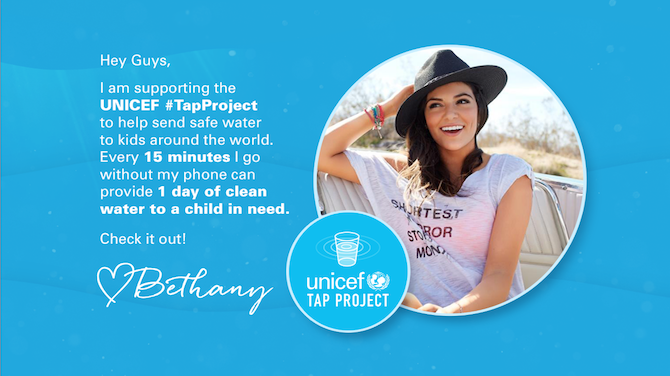
YouTube star and UNICEF Supporter Bethany Mota joined the UNICEF Tap Project in 2015.
HOW TO HELP
There are many ways to make a difference
War, famine, poverty, natural disasters — threats to the world's children keep coming. But UNICEF won't stop working to keep children healthy and safe.
UNICEF works in over 190 countries and territories — more places than any other children's organization. UNICEF has the world's largest humanitarian warehouse and, when disaster strikes, can get supplies almost anywhere within 72 hours. Constantly innovating, always advocating for a better world for children, UNICEF works to ensure that every child can grow up healthy, educated, protected and respected.
Would you like to help give all children the opportunity to reach their full potential? There are many ways to get involved.




